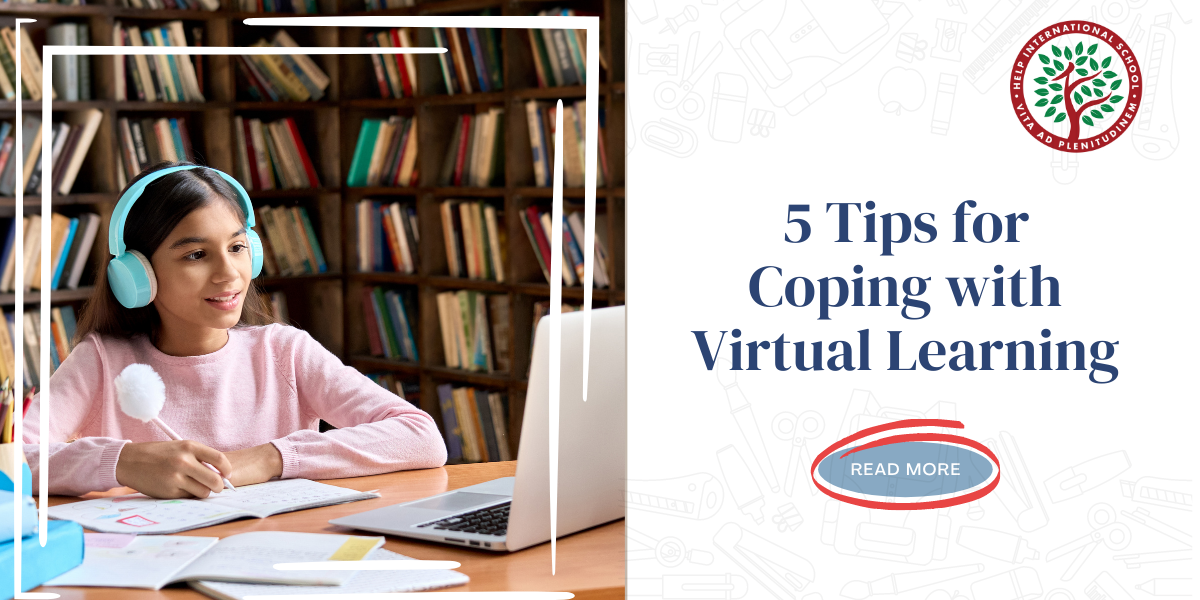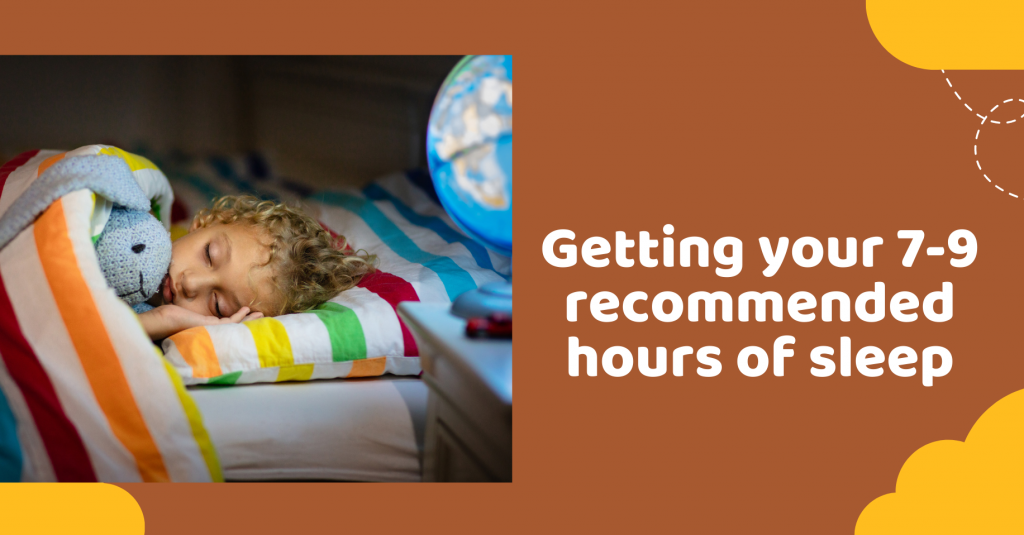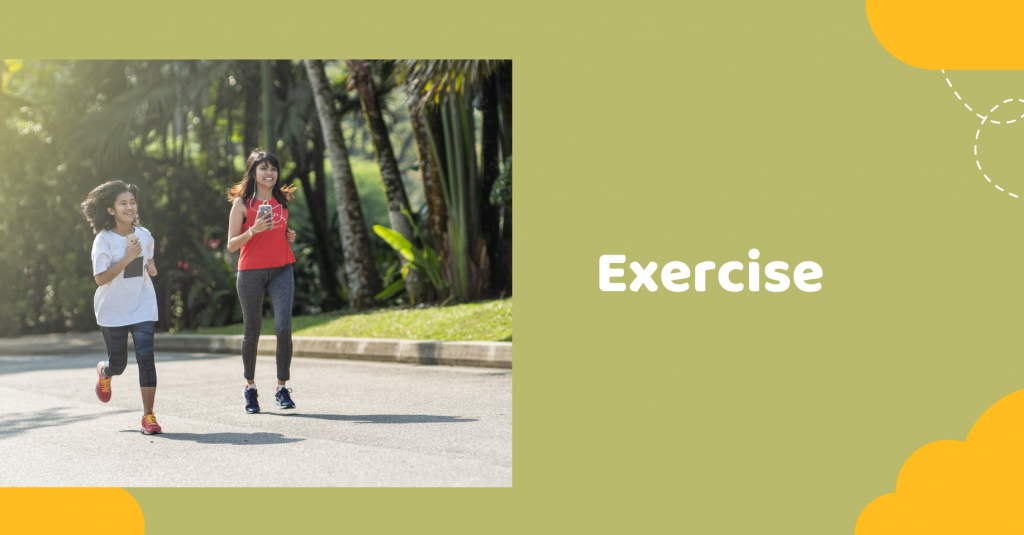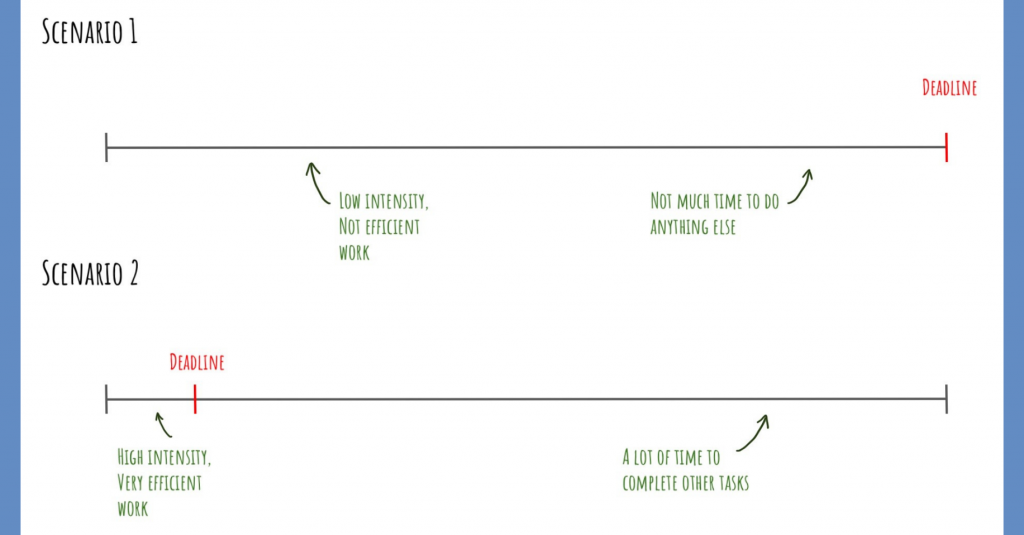By Chew Yu Xuan & Scott Koh (Year 12 Mar Comm Interns)
The COVID-19 pandemic has brought about an incredibly unique scenario for many students and families across the globe. With schools being forced to close temporarily in order to keep families safe, students have been encouraged to adapt to a completely new environment – online learning from the comfort of their own homes. Such a massive and sudden change is bound to bring about a lot of uncertainty, so it is completely understandable that you may be feeling a little stressed out or having a slightly more difficult time learning in a fully virtual classroom environment. But even if you believe that you are coping just fine, or are struggling just a tiny bit, consider these, hopefully, helpful tips and suggestions we’ve compiled on both some general advice and more specific strategies on how to ter cope with virtual and online learning.
Sleep is one of the most fundamental factors for maintaining good health and managing stress levels, but it can also very often be neglected and paid little attention and care to. Worldwide studies have shown that more than 53% of teenagers and adults are getting less than 8 hours of sleep a day. You may have heard of the phrase, “I’ll sleep when I’m dead”. Well without enough sleep, you definitely won’t be living in the most enjoyable manner you want either.
Many of the body and mind’s most important processes happen when you’re asleep, from energy conservation to weight maintenance to bolstering of the immune system, sleep has a bucketload of crucial functions. If you are a student, sleep and everything that has been said here matters and applies to you the most. Scientific research has proven that sleep also plays a critical role in memory consolidation and memory formation. A good night’s sleep will not only allow you to feel more energetic, alert and focused during the day, but also allow you to ter retain the new information you’ve learnt during lessons and form memories. So rather than pulling caffeine-fuelled all-nighters and studying vigorously for days on end, it might be a ter idea to simply put the books away and have a good night’s rest.
If you have trouble sleeping at night, there are a couple of notable things that may help:
- A good sleeping habit to have is to stick to a consistent sleeping schedule – going to sleep at around the same time every night allows your body’s circadian rhythm, or internal clock, to naturally adjust to your routine and you’ll begin to feel tired at around the same time every night, allowing you to fall asleep much easier and for a longer period of time.
- Avoid looking at screens before going to bed, as the blue light emitted from your devices can also disrupt your internal clock and reduce the amount of melatonin that your body needs to be produced in order for you to start feeling sleepy.
- Try to keep your room cool and comfortable
- And finally, avoid drinking caffeine after lunchtime, as caffeine can actually stay in your system for a lot longer than you think – up to 10 hours, as one study concluded.
With the pandemic restricting most of us to just the comfort of our own homes, many have probably felt too focused on school work, class and other priorities, that the amount of exercise we’re able to get has slowly dwindled. Whether you like it or not, exercise, along with sleep and diet, are the principal key aspects of every healthy person’s lifestyle.
We understand. Exercising can sometimes be a pain – you’ve got to find the right time, the right place, and a lot of the time…the right motivation. The good news is however, even if you don’t particularly enjoy exercising, there are plenty of great alternatives you can find that will still allow you to reap the many real benefits of exercise: helping around the house by doing certain chores, walking the dog, dancing, going outdoors and taking short brisk walks around the park or cycling a few laps around the neighborhood. All of which still count as decent workouts and can go a long way to helping ease stress, anxiety and improve mood and overall health.
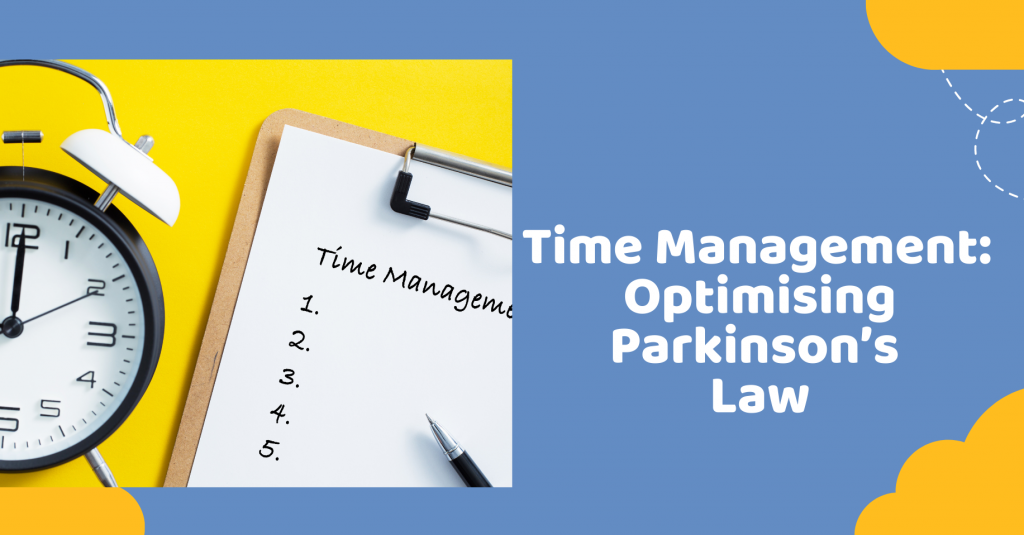 During virtual learning, it is so much easier for students to slip – to lose control of their management of time and let things pile up, leading to a spiral downwards that will be more and more difficult to catch up afterwards. From here we utilise Parkinson’s law to our own benefit:
During virtual learning, it is so much easier for students to slip – to lose control of their management of time and let things pile up, leading to a spiral downwards that will be more and more difficult to catch up afterwards. From here we utilise Parkinson’s law to our own benefit:
“Work expands so as to fill the time available for its completion.” To put it in laymans’ terms, if a deadline is far away, we spread it through the time period and do it with low efficiency. If the deadline is close, we complete it first with a high intensity, and have a lot more time to finish other tasks or enjoy our hobbies.
We now know what Parkinson’s law is, so what?
After analysing the scenarios above, I think we can mostly agree that the latter scenario is the more desirable one to maximise the time that we have and make use of it properly. We have to create strict deadlines for ourselves prior to the deadline the teacher has set. Under normal circumstances, the deadlines teachers give are usually fairly reasonable, but we still struggle to get things done until the very last minute due to many students’ habit of piling things up, which only gets worse during virtual learning. To counteract this, we can see now how important setting deadlines for ourselves and being self-disciplined are.
Here’s an example: if your math teacher gives you a math assignment that is due next week, plan: how long do you think it will take to complete it? If it takes two hours to complete it, use one hour today to finish half of it, and one more hour tomorrow to complete it, and you have five extra days to not worry about it anymore, freeing your mind from that burden and having time to enjoy other activities. (Of course, this is just a suggestion, it depends on yourself on how you plan it)
Of course, this takes time. If procrastination often gets the best of you, this may be a tough rule to follow, but a solution that truly solves the root of the problem if you master it. Understand that during virtual learning, you have to put extra effort into making sure you’re keeping up with your homework and studies, so understanding Parkinson’s law and actively applying it in your everyday life will make virtual learning many times easier.
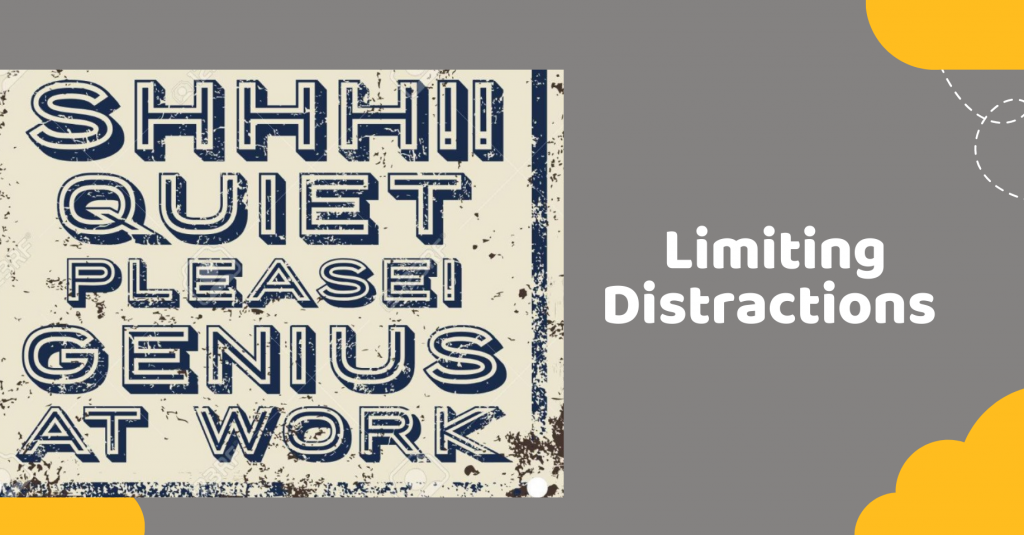 As students, most of us don’t live alone. No matter if you’re staying with your family or in a dorm with roommates, distractions will always be in your way to virtual learning. Your dad may call you to do the dishes. Your mum may ask you to walk the dog. Your younger siblings may sprint to you about their homework, and you just cannot resist the urge to scream at them and tell them you should not be disturbed. Eventually, you might feel that virtual learning is just not effective with distractions constantly looming around.
As students, most of us don’t live alone. No matter if you’re staying with your family or in a dorm with roommates, distractions will always be in your way to virtual learning. Your dad may call you to do the dishes. Your mum may ask you to walk the dog. Your younger siblings may sprint to you about their homework, and you just cannot resist the urge to scream at them and tell them you should not be disturbed. Eventually, you might feel that virtual learning is just not effective with distractions constantly looming around.
Here are some tips to help you cope with these distractions and know how to create the optimal workspace for you to focus deeply on your studies and ace that test.
Hang a sign on your door that you are not to be disturbed while you’re virtually learning. It can be something as straightforward as a “Do Not Disturb” sign on a closed door, or if your parents do not like closed doors, then perhaps a large object on your doorway like an unused bag or a book with a bright colour that indicates to other people that if the object is there, do not come in and talk to me unless the house is on fire.
Of course, this only works if there is a good, two-way communication ween you and the other people in your house. Politely explain to them the reasons why you do not want to be disturbed during virtual learning and come up with a compromise so that both parties understand and respect each others’ choices. Tell them when they see a red book by your doorway, they should not enter and talk to you.
You worked hard! These are challenging and confusing times, but you still push through, day after day. Virtual learning is tough, many students across the globe can relate to it, so know that this is not a battle you are fighting alone. We are all in this together, striving and venturing towards the future no matter what reality throws at us. Don’t be so hard on yourself! We’re humans, we won’t be at our best and most productive state every single day, so take some time for yourself to breathe and pause for a moment to look at how far we’ve all come.
Take some time to unwind and replenish your fuel; virtual learning can be very draining. Call your friends. Go for a walk. Watch your TV shows if your eyes aren’t strained from watching screens all day. The key thing here is balance: don’t overwork yourself. You are allowed to rest at times, especially during online learning. Self-care is very important!
In conclusion, change is always hard; our minds and bodies love to have a sense of security by keeping ourselves in a comfort zone without venturing towards new ways of learning. Together, we can conquer the challenges virtual learning hurls at us and make use of all the benefits it brings, and ensure that learning never stops, pandemic or not.

